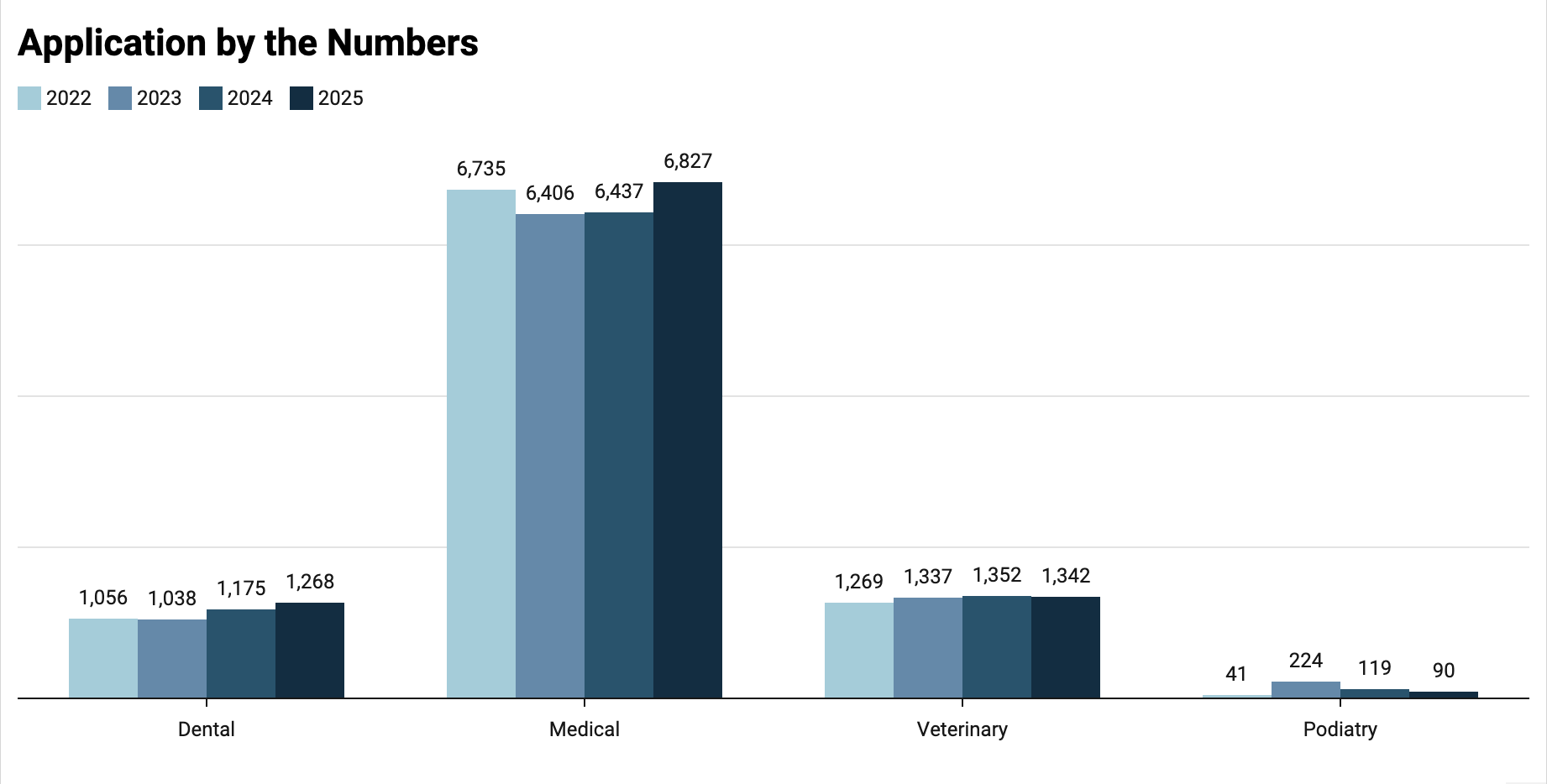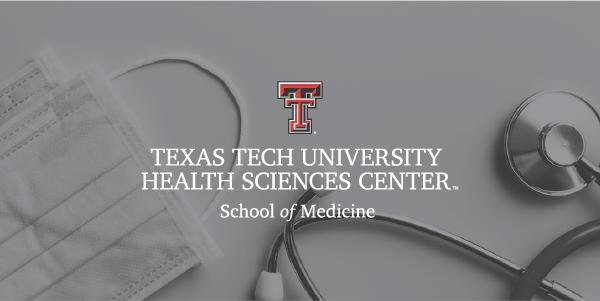Counting on the Future: TMDSAS Applications and Texas's Healthcare Workforce
The Texas Medical and Dental Schools Application Service (TMDSAS) has published its
data for the 2025 application cycle, offering a snapshot of the pipeline for future
healthcare professionals. As the numbers show, while there is growth in key areas,
challenges persist in others. These figures, against the backdrop of well-documented
shortages across healthcare professions, underscore the critical importance of tracking
and responding to application trends.

Dental Applications: An Upward Trend
The number of dental school applications in Texas grew to 1,268 in 2025, an 8% increase
from the previous year. This trend mirrors national growth patterns reported by the
American Dental Education Association (ADEA), where interest in dentistry has rebounded
post-pandemic. The rise is encouraging in a state where access to dental care remains
inconsistent, particularly in rural counties.
Medical Applications: A Robust Rebound
Medical school applications increased by 5%, with 6,827 students applying through
TMDSAS. This recovery aligns with national trends reported by the American Medical
College Application Service (AMCAS), highlighting continued enthusiasm for medical
careers. However, this growth comes as Texas faces significant shortages of primary
care physicians, particularly in rural areas, where over 185 counties are designated
as Health Professional Shortage Areas (HPSAs) for primary care (Health Resources &
Services Administration [HRSA], 2023).
Veterinary Applications: A Field Holding Steady
Applications to veterinary schools saw a slight 1% decline to 1,342, showcasing remarkable
stability in a field of growing importance. The steady numbers reflect a continued
interest in veterinary medicine, a profession critical to Texas's agricultural backbone
and pet-loving communities.
This plateau aligns with national trends reported by the Veterinary Medical College
Application Service (VMCAS). It highlights the opportunity to address financial and
workload challenges that may deter applicants while emphasizing the essential and
fulfilling role veterinarians play. For those inspired to care for animals and support
vital industries, veterinary medicine remains an incredibly impactful career choice.
Podiatry Applications: A Field with Opportunity
Podiatry applications stand at 90 for the 2025 cycle, reflecting a 24% decrease from
the previous year. While this figure calls attention to the current challenges facing
the field, it also highlights an incredible opportunity. With the application deadline
for podiatric schools still open until March 2025, there is ample time to encourage
more prospective students to consider this specialized and impactful career.
The data underscores the importance of raising awareness about the critical role podiatrists
play in preventive care, diabetic foot health, and sports medicine. With the right
outreach and resources, this decline in applications can be transformed into an opportunity
to inspire the next generation of podiatrists, ensuring healthier outcomes for underserved
communities across Texas.
Current Healthcare Shortages
The TMDSAS application trends cannot be viewed in isolation. They must be understood
within the broader context of Texas’s healthcare shortages:
- Primary Care Physicians: Nearly 185 counties in Texas are designated as primary care HPSAs, meaning access
to basic medical services is limited for millions of residents (HRSA, 2023).
- Dentists: Rural areas face a severe shortage of dentists, contributing to oral health disparities
that disproportionately impact low-income and underserved populations (HRSA, 2023).
- Veterinarians: The demand for veterinary services in Texas, particularly in agricultural regions,
continues to outpace supply, creating stress on existing professionals (DSHS, 2023).
- Podiatrists: With more than two-thirds of Texas counties lacking podiatric services, the implications
for diabetic foot care and other chronic conditions are significant (DSHS, 2023).
These shortages, highlighted in publications such as JAMA Network Open and reports from state health agencies, illustrate a pressing need to strengthen
the healthcare pipeline (Basu et al., 2021).
Why These Numbers Matter
Behind every application is a potential healthcare provider, a professional who might
address Texas’s growing needs. The rise in dental, medical, and veterinary school
applications is a promising sign, but the our community must come together to recruit
and engage aspiring podiatrists.
Sources:
- Basu, S., Berkowitz, S. A., Phillips, R. L., Bitton, A., Landon, B. E., & Phillips,
R. S. (2021). Association of primary care physician supply with population mortality
in the United States, 2005-2015. JAMA Network Open, 2(9), e1912149. https://doi.org/10.1001/jamanetworkopen.2019.12149
- Health Resources & Services Administration. (2023). Health Professional Shortage Areas
(HPSAs) and Medically Underserved Areas/Populations (MUAs/MUPs). Retrieved from https://data.hrsa.gov/tools/shortage-area
- Texas Department of State Health Services. (2023). Supply and distribution tables
for state-licensed health professions in Texas: Podiatrists. Retrieved from https://www.dshs.texas.gov
- Veterinary Medical College Application Service. (2023). Annual Report. Retrieved from
https://www.aavmc.org




